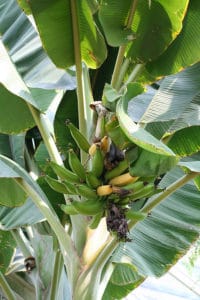Yahoo Finance
Business Wire

Seattle — A U.S. consumer yesterday sued the Dole Food Company, Inc. (DOLE), the world’s largest fruit and vegetable company, alleging the company lies to consumers in stating it is an environmentally friendly and socially responsible company in terms of its banana-growing practices, when in fact Dole purchases bananas from growers whose operations have destroyed wetlands and poisoned water sources with pesticides in Guatemala.
The lawsuit, filed on Nov. 13, 2012, in the United States District Court for the Central District of California, alleges that in spite of Dole’s promises to act as a safe and sustainable company in communities where its products are grown, the company knowingly purchased bananas from a plantation in Guatemala that devastated the local environment and community.
In one example cited in the complaint filed by Steve Berman, managing partner of the Seattle law firm Hagens Berman, a contractor who supplies Dole with approximately 290 million pounds of bananas built a dam in the Department of San Marcos in Guatemala to protect its banana and oil-palm plantations. The complaint alleges the dam caused extensive flooding, and that development of the plantation included draining 1,200 acres of pristine wetlands.
“Dole promised its customers it had an ‘unwavering commitment’ to environmental responsibility,” said Berman. “Yet, it gave its business to a plantation that showed a complete disregard for the local environment.”
The lawsuit alleges that the dam resulted in severe flooding downstream from the banana plantation, destroying local farmers’ crops and causing significant economic losses.
“Farmers in this region – many of which are subsistence farmers – could previously count on two harvests each year,” said Berman. “Since the dam was constructed, many are barely harvesting enough to make it through the season.”
Berman also noted that the local population suffered and continues to suffer adverse effects from the plantation’s ongoing operations.
“The plantation contaminates local rivers with toxic fertilizers and pesticides,” said Berman. “The drinking water that local people rely on has nitrate levels ten times the maximum level recommended by the World Health Organization.”
“Sure, Dole can point to bright shiny fruit for American consumers, but at an enormous price to the local population,” Berman added.
According to the complaint, various governmental and environmental groups, including the Guatemalan Ministry of Agriculture and Water & Sanitation Health, Inc. (WASH), have confirmed that the actions of the plantation directly resulted in flooding and water contamination in the area.
The plaintiff in the proposed class-action suit alleges that if he had been informed of the damaging methods used to produce Dole’s bananas he would not have purchased or paid as much for them.
“We applaud it when companies make – and follow – declarations of ecological responsibility,” Berman noted. “But when a company increases its market share by misleading consumers, as we allege Dole has done, that is both despicable and cynical.”
The suit alleges that Dole’s false claims to its customers violate the California Consumer Legal Remedies Act, the California Unfair Competition Law and California Common Law in relation to fraud and unjust enrichment.
The class action lawsuit seeks a ruling from the court that affirms Dole deceived its customers, requires the company to notify all plaintiffs and class members of the truth regarding its banana production methods, and awards plaintiffs and class members appropriate damages.
Individuals who purchased Dole bananas are encouraged to contact Hagens Berman to discuss the case. Consumers can contact an attorney by calling (206) 623-7292. They can also email the firm at [email protected].
More information is available at www.hbsslaw.com/DOLEBananas.
About Hagens Berman
Seattle-based Hagens Berman Sobol Shapiro LLP represents consumers, inventors, workers, whistleblowers and investors in complex litigation. The firm has offices in ten cities across the country and has been named one of the top plaintiffs’ law firms by the National Law Journal six times. More about the law firm and its successes can be found at www.hbsslaw.com.

